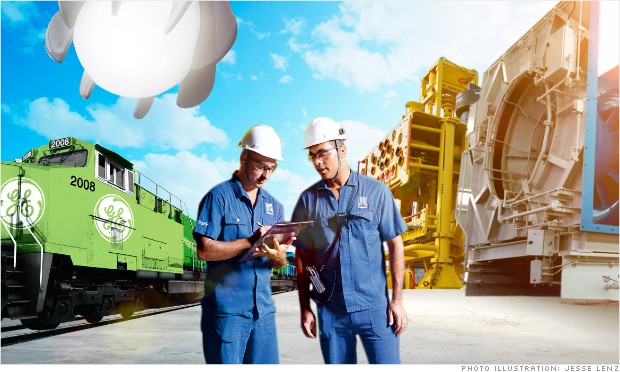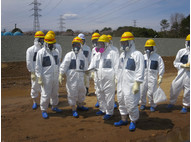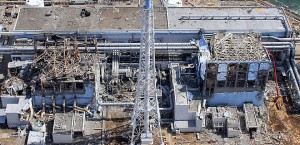General Electric (Ticker “GE”) Fortune Magazine World’s Most Admired Companies at rank 11. GE is the single surviving company from the 1896 Dow Jones Industrial Index and currently has roughly 305,000 employees and over 140 billion dollars in revenue last year [GE 10-K for the year ending March 31, 2013]. I believe it is safe to say these guys know what they are doing. They are in the business of designing and manufacturing appliances plus energy, health, aviation, and transportation equipment in addition to operating a financial services company.
Due to GE’s aggressive and hard pressed past, there are very few companies with the same or even similar brand recognition, especially as they have had such a long standing track record.
Though a mammoth company, GE too had troubles fighting down turns in 2008. GE’s financial services wing, GE Capital, found itself holding just about half of GE’s profits. GE Capital was having difficulties and thus GE had to cut its dividend which was a huge blow to its image. All of this finance/business aspect of the company then affected how GE would then change its ways operationally. GE realized it needed to simplify, and was most definitely a task involving and most reliant on its operations management team.
Most interesting for me was the refocus on a portfolio of the company to refocus on its traditional core industries. That is, they are now going to focus and dominate at what they are good at. For example, in 2012 GE began to make water heaters which was its first new product in 50 years. The site that it was built on was named Appliance Park, KY (notice any connection?) though this site had been used less and less due to favorable overseas factories which were much cheaper. Interestingly, in 2009 GE shifted toward moving those overseas jobs back into the domestic light. This process is just being finalized and in full swing.
The result? A cheaper and much more rapid production thanks to an efficient domestic supply chain perfected by the company.
Another interesting note about this company’s changes: GE is spending money on investments in the “industrial internet” in order to take hold of ‘big data’ to make more efficient machines.
Things to think about:
-How do you think GE asses’ its ‘utilization’ and ‘efficiency’ for its production facilities now that there is a fully implemented shift into domestic production for this large company.
-We discussed in our course lecture the concept of ‘planning over a time horizon’. How do you think GE will have to change the way it plans its capacity or the upper limit or ceiling on the load that an operating unit can handle?
-We have seen virtually all large companies using automation and focusing on capacity. We just discussed this in the course lecture last week. How do you think GE’s focus on investing in the “industrial internet” will change the efficiency of their production machines? Do you think this will be a drastic change? Something they won’t see for a long period of time?
Link to this CNN Money Article: http://money.cnn.com/2013/05/06/leadership/general-electric-industry.pr.fortune/index.html


